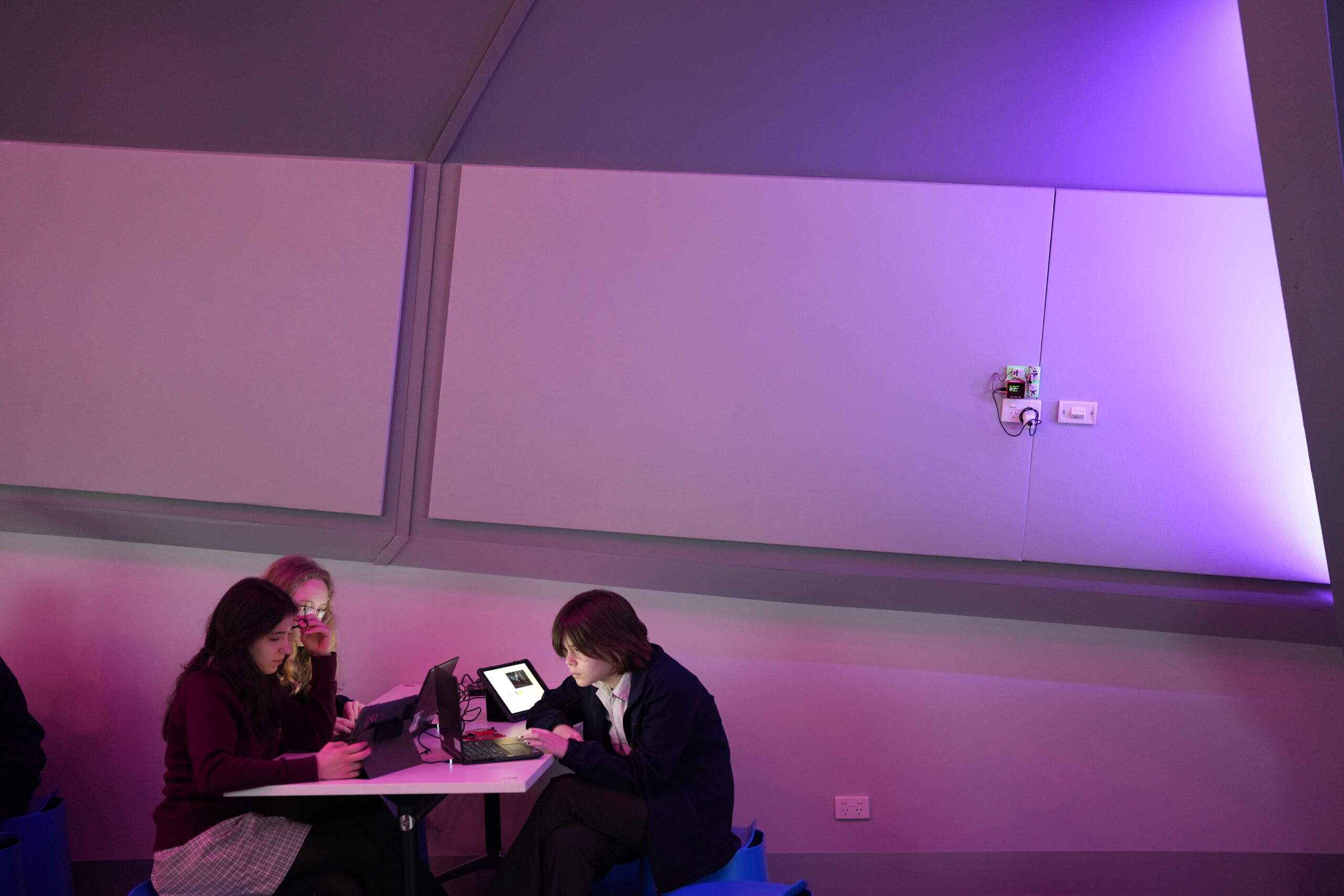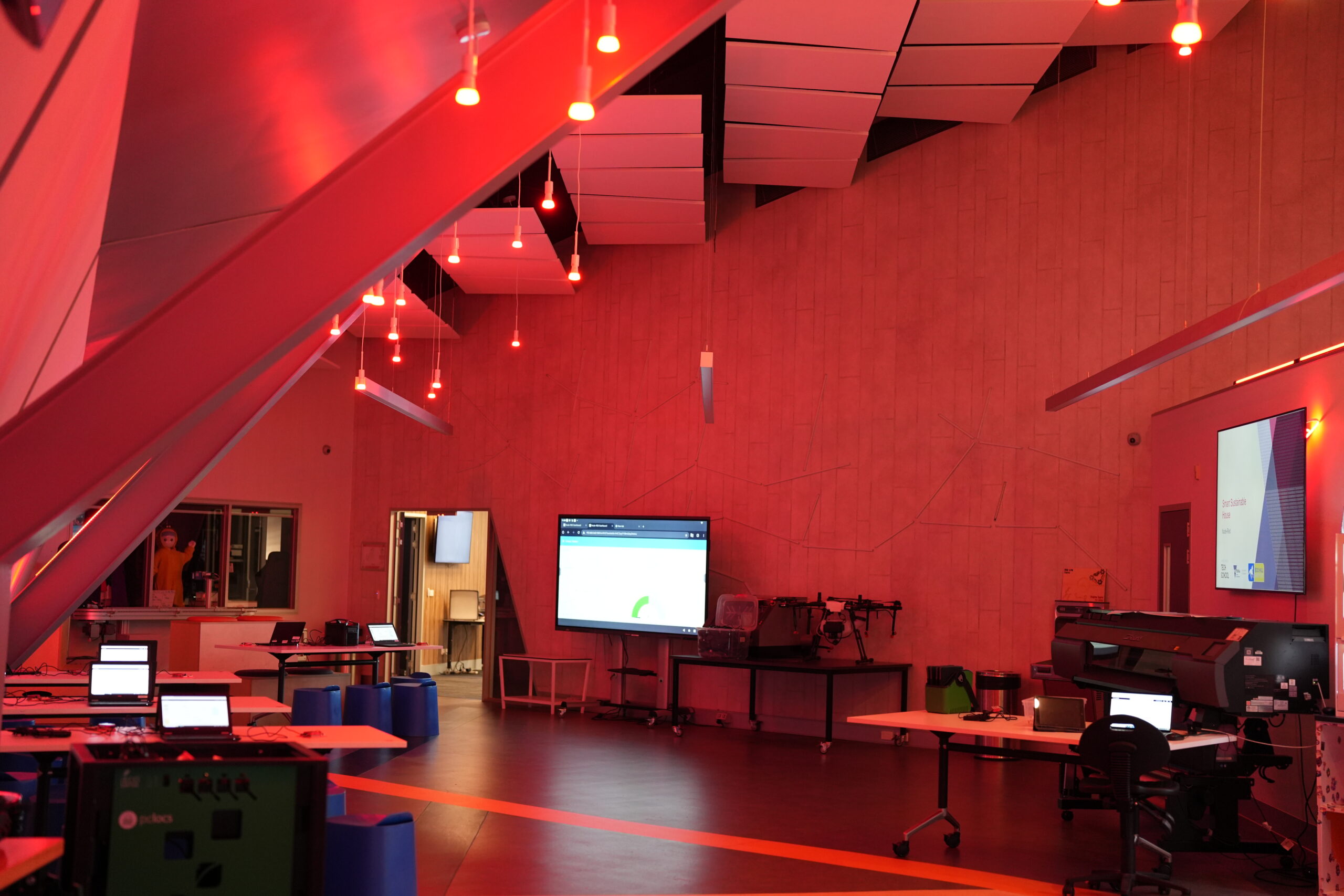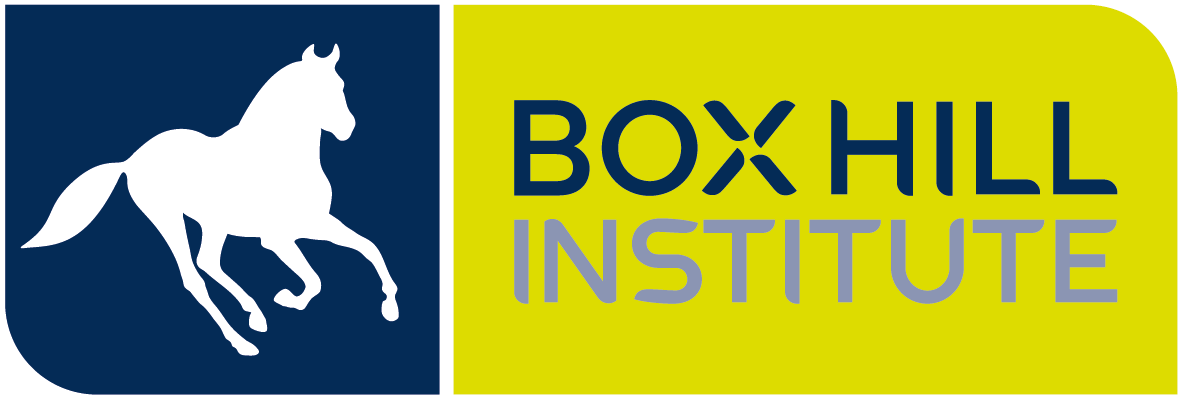Maximum Number of Students
75
Duration
1 or 2 Days 9:30 – 2:30
Curriculum Areas
9 – 10 Humanities
VM WRS
7 – 10 Science
Description
How can we design energy systems that power the future without costing the planet?
In Renewable Futures, students take on the challenge of powering a sustainable future. They design, build, and optimise miniature renewable energy systems that integrate solar panels, wind turbines, and battery storage. Working in teams, students manage resources through a token-based economy, making financial decisions as part of the design process. Using tools like a heliodon, they simulate solar angles to test how sun position affects energy production. By collecting and analysing real-time sensor data, students refine their systems for maximum efficiency. The program culminates in a smart city design challenge, where students model sustainable energy networks and propose creative energy solutions for local or global contexts.
This program builds STEM capability through systems thinking, engineering design, collaboration, and real-world application of renewable energy principles.
In an optional Day 2 of the Renewable Futures program (can be done on-site or at school), students shift from designing energy systems to prototyping smart, sustainable homes. Using recycled materials and basic electronics, they build model houses that incorporate automation features such as responsive lighting, temperature control, and motion sensors. Students test their designs using real-time data to refine their homes for energy efficiency. The day culminates in a team pitch where students present their designs, highlighting environmental impact, smart features, and cost-benefit trade-offs. This hands-on extension deepens systems thinking, design skills, and understanding of sustainable living.
Learning Outcomes
Career Paths
Tertiary Options

Before your visit
Yarra Ranges Tech School has pre-work and post-work developed specifically for each program. We suggest reviewing and implementing these resources to enhance your curriculum and support alignment with the Victorian 2.0 curriculum.

Share your resources
Yarra Ranges Tech School recognises the hard work our partner school teachers put into developing resources. If you have materials that link to our programs, we’d love to share them with your peers. Please contact us at YRTSProgrambookings@boxhill.edu.au to submit your resources.




